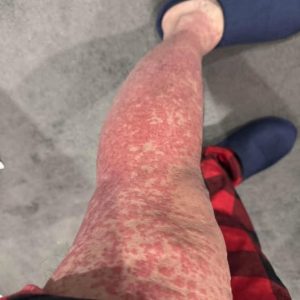Unexpectedly, the tilapia fish, which is often regarded as a benign choice on dinner tables worldwide, harbors a concerning secret that may give seafood lovers reason to reconsider. Beneath its mild taste and affordability lies a disturbing reality: tilapia is often alarmingly high in dioxin, a lethal toxin that has quietly infiltrated the food supply.
What is Tilapia?
Tilapia, frequently referred to as the “aquatic chicken” of the seafood industry, has carved out a significant niche in the global culinary scene. Its appeal extends beyond taste to economic factors, making it a favored selection for both consumers and producers What is Dioxin?
Dioxin, a term that may seem unfamiliar to some, refers to a group of highly toxic chemical compounds that share a common structural feature. Although this structure may appear innocuous, it is, in fact, extremely hazardous and enters our environment in a subtle manner.
Health Risks Associated with Dioxin
The presence of dioxin in certain tilapia poses significant health risks that warrant serious consideration. These threats, supported by extensive scientific research, affect various aspects of human healt
Cancer: Exposure to dioxins may increase the likelihood of developing lung, breast, liver, and prostate cancers. These toxins disrupt normal biological functions, leading to uncontrolled cell growth, a hallmark of cancer.
Immune System Compromise: Dioxins can weaken the immune system, rendering individuals more susceptible to infections and diseases. This detrimental effect on immunity can jeopardize overall well-being.
Hormonal Disruption: Dioxins have the potential to disturb hormonal equilibrium, which may result in reproductive and developmental complications.
Liver Damage: Dioxins can harm the liver, an essential organ responsible for detoxification and metabolism. Liver disease can have extensive repercussions for overall health.
Psychological Disorders: Long-term exposure to dioxins has been associated with mental health issues, underscoring the insidious nature of this chemical.
The Essential Importance of Awareness
To make informed choices when buying fish, individuals can take several proactive measures:
Examine Labels: Focus on the labeling, particularly when selecting packaged tilapia.
Investigate Sources: Verify the origins of your seafood. Are they recognized for upholding high quality and safety standards in aquaculture or fishing?
Refer to Seafood Guides: Utilize reputable seafood guides and applications for insights on sustainable and safe seafood selections.
Promote Sustainable Practices: Choose seafood from sustainable sources.
Broaden Your Selections: Think about expanding your seafood variety.




